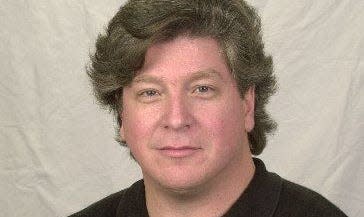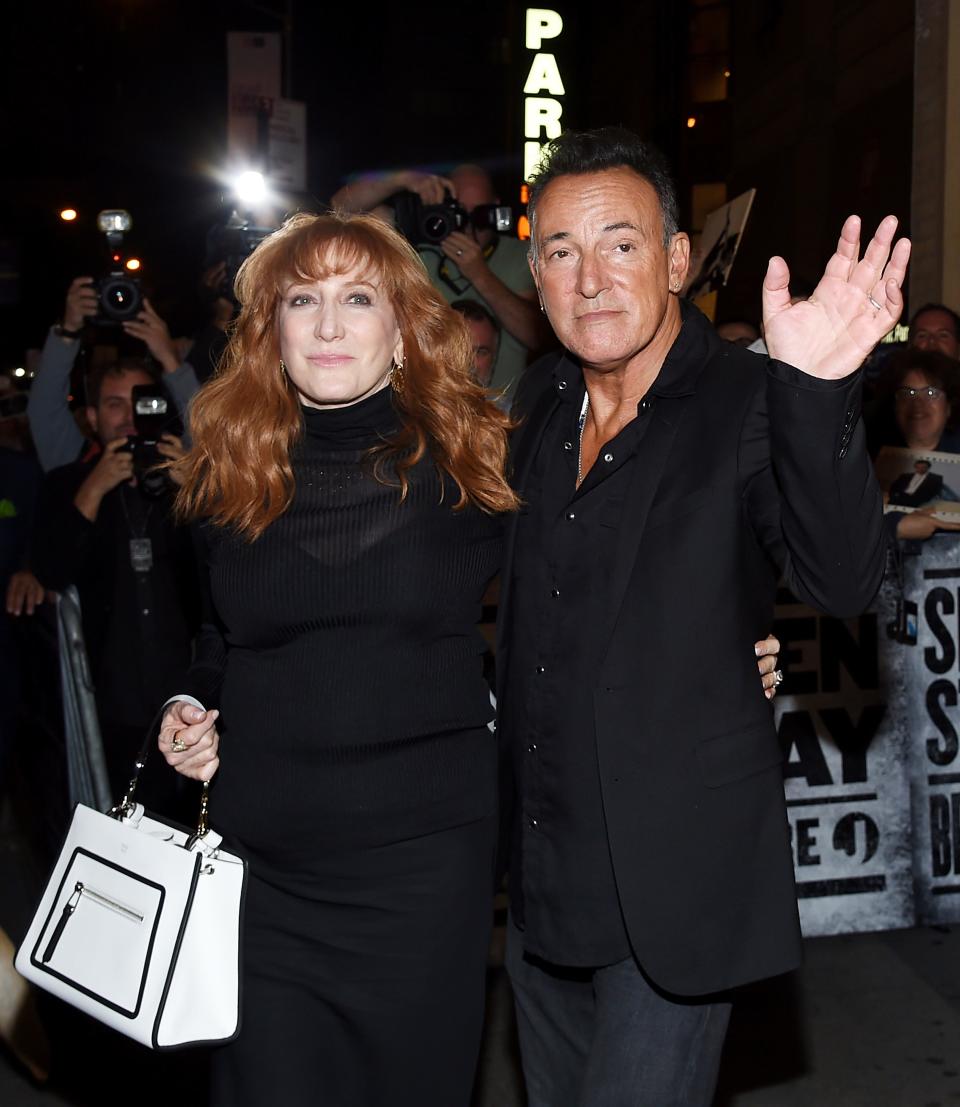One step up, two steps back, when opposites attract | MARK HUGHES COBB

Some think the eternal struggle comes down to a battle between Aquarius vs. Libra. Others aver morning person vs. night owl.
Surely folks should match by age, region, height and education, say dating services, so why not by weight class?
In John Irving's "The Water-Method Man," precursor to his "The World According to Garp" and "The Hotel New Hampshire," rife with lunacy and sorrow, longing that stems from loss, Sue "Biggie" Kunft, a zaftig skier for the U.S. Olympic team, meets up and falls down with the novel's titular character, a largely useless but somewhat charming guy named Fred Trumper. Because of a propensity for tumbling into webs of stupid, needless lies, his friends know him as Bogus. Like many Irving protagonists, and the writer himself, he's an ex-wrestler, shortish, stocky, strong.
As Bogus and Biggie snuggle under a comforter, they compare bodies, given chiaroscuro conditions. He's afraid to stand, as he's pretty sure she's taller. Used to baby-butt-smooth skiers, their skin rubbed away by repeated layers of down, she notes Bogus suffers pores. His mustache she describes rather unflatteringly, before learning he grows as much hair as possible, hoping to blanket the pore problem.
MORE FROM MARK HUGHES COBB: Seeing into and through the illusions of art
Looking down along her body, she shares self-image issues: "I was always big," she said. "People were always fixing me up with giants. Basketball and football players, great big awkward sorts of boys. Like it was necessary we be matched or something. 'Got to find someone large enough for Biggie.' Like they were finding a meal for me .... people just seem to think it means something if you're big — like being rich, you know? They think if you're rich, you only like things that cost a lot of money. And if you're big, you're supposed to have some special attraction to big things."
I won't spoil anything for this 50-year-old novel, but Bogus and Biggie collide, and rebound, as opposites can and do, though because of shared family, they remain loosely in each other's orbits. That can happen, even should you find yourself in an odd couple, neat and messy, extroverted and introverted, health-conscious and self-destructive ....
Paula said it can work, long as both balance their moves, extrusions and intrusions: two steps forward, two steps back. Bruce saw a different dance at the aphelion of an attraction: "There's a girl across the bar/I get the message she's sendin'/Mmm, she ain't lookin' too married/And me, well, honey I'm pretending./Last night I dreamed I held you in my arms/The music was never-ending/We danced as the evening sky faded to black/One step up and two steps back."

Back in 2019, he cut his most unusual solo disc, "Western Stars," a panoramic sundown streaked with high lonesome, tainted by depression — he's been open about his struggles, how they mirrored his father's — and dusky ruin, but coated with strings-and-orchestration aural gloss like early '70s Southern California pop, a bit of the Byrds, a trace of Jimmy Webb (writer of Glen Campbell's gems "Wichita Lineman," "By The Time I Get to Phoenix" and "Galveston"), a hint of Harry Nilsson, a soupçon of Brian Wilson, and of course, as ever, a shot of Roy Orbison.
Because he's not gonna lie down long, he and collaborator Thom Zimny shot a friends-only concert in his tricked-out Jersey barn, a burnished, inviting shell that wafts warmth like a freshly-poured tumbler of whiskey. Cobbling together interviews and vintage footage of the young — he'll be 73 in September — greasy bum, born to run and ruminate, they made a film, also titled "Western Stars," built around the 13 songs, performed live with strings and horns and such, because that's the Boss's barn.
Though he's been married to Patti Scialfa since casting off a first marriage — at least in part via the "Tunnel of Love" album, the finest breakup disc you'll ever struggle, wince and writhe through — with whom he's raised three kids, one of whom just made them grandparents, he's still tugged by yearning like a kite flying nearly out of sight. He reflects on growing older, thornier, testing edges and keeping a weather eye out for the person whose puzzles most nearly and neatly lock.
"We all have our broken pieces. Emotionally, spiritually, in this life, nobody gets away unhurt," he says. "We're always trying to find somebody whose broken pieces fit with our broken pieces, and something whole emerges."
I can summarize the 25-page Yale/University of California study "Rethinking Rumination" thusly: Thinking hurts. People who obsess, focus inward, self-examine and criticize, tend toward depression. Hence: writers. So the true opposites that may attract, but can never last: The introspective versus the extrospective. Those who ruminate versus those who exterminate, making suffering something that only happens to others.
Last week, discussing the finally-arriving "Mamma Mia!," a friend whose name I won't disclose, because I said I wouldn't, but also because it's more fun to guess, said, re: the joyous nature of the show, crafted around ABBA: "I don't want to think." She blurted that out, which I can relate to, being as awkward blurt-bursts represent about 91 percent of my daily verbal discourse.
Of course we knew what she meant. The show, like ABBA, is fun, light and frilly; it bounces and flounces. Even when sad, it's redeeming, even heartwarming.
![Reagan Branch (left) and Jamie Shannon Ferguson Ertle in Theatre Tuscaloosa's production of "Mamma Mia!," running Friday through July 24 in the Bean-Brown Theatre. [Photo by Porfirio Solórzano]](https://s.yimg.com/ny/api/res/1.2/q9Q_wAcjpDDjin7LEP1cNw--/YXBwaWQ9aGlnaGxhbmRlcjt3PTk2MDtoPTcxNQ--/https://media.zenfs.com/en/the-tuscaloosa-news/ba47531490977b591379eda83f8b52bb)
Clearly we're still not out of the pandammit. Though cases do seem to be dimming, with many reporting mere "bad cold" symptoms, COVID-19 and The Diverse Variants — sounds like an '80s synth-pop band — still squirm amongst us. Back in June, The Rude Mechanicals was forced to cancel a run of "The Tempest" because of a cast member testing positive. We're trying to bring it back at 8 p.m. July 30, and 2 p.m. July 31, in the Allen Bales Theatre. I pulled together cast and crew for "Much Ado About Nothing" just three weeks after the tempest that didn't arise, even though we had to Zoom in an actor early on, and though others suffered conflicts that brought them in late, and thus less prepared. It's semi-miraculous the show ran well as it did ... for three nights. Until an actor came down with the crud.
Melanie, my assistant director, and I pondered a work-around that morning. She could step in, and even with script in hand could keep the show rolling. We talked about masks, and posting warnings.
Then, coming out of the brain fog, we realized no: Too much risk. Actors expel. Instead, we gathered up stuff that afternoon — Saturday would have been the closing — and talked with cast who wandered in. We stretched, compared notes, packed. Then Mel and I stood out in the parking lot, talking, like we do, and turning away, sadly, folks who hadn't gotten our social media posts about cancelation. Some were dressed up, perfumed and primped, for a night out. There we were, sweating in our tees and shorts, saying "Sorry folks! Wally World is closed for (nasopharyngeal) cleaning!"
If there's anything that deepens the melancholia of cutting a performance, it's having to tell good folks that it wouldn't, couldn't, in all safety, go on.
I don't think it's coincidental that, aside from hoo-mans, gorillas and elephants (two of my top beasts; I'm guessing orangutans haven't been studied closely enough, shy giants they are) are thought to be the only animals who cry emotional tears.
Basal, the kind produced to keep your eyebulbs (Cobb family joke, from a kidhood mispronunciation) healthy, yes, and surely even reflex tears, the type when something — like wind, smoke, or a tiger — suddenly gets up in your peepers, I'm betting plenty of animals experience those.
Aren't we the lucky few, though, to produce hurry-home drops that wash away stress as they fall? Those wellings that stimulate endorphins, the feel-good chemical, when needed most?
It seems an ultimate odd couple, laughter and lamentation, but they flow together.
Reach Tusk Editor Mark Hughes Cobb at mark.cobb@tuscaloosanews.com, or call 205-722-0201.
This article originally appeared on The Tuscaloosa News: One step up, two steps back, when opposites attract | MARK HUGHES COBB

